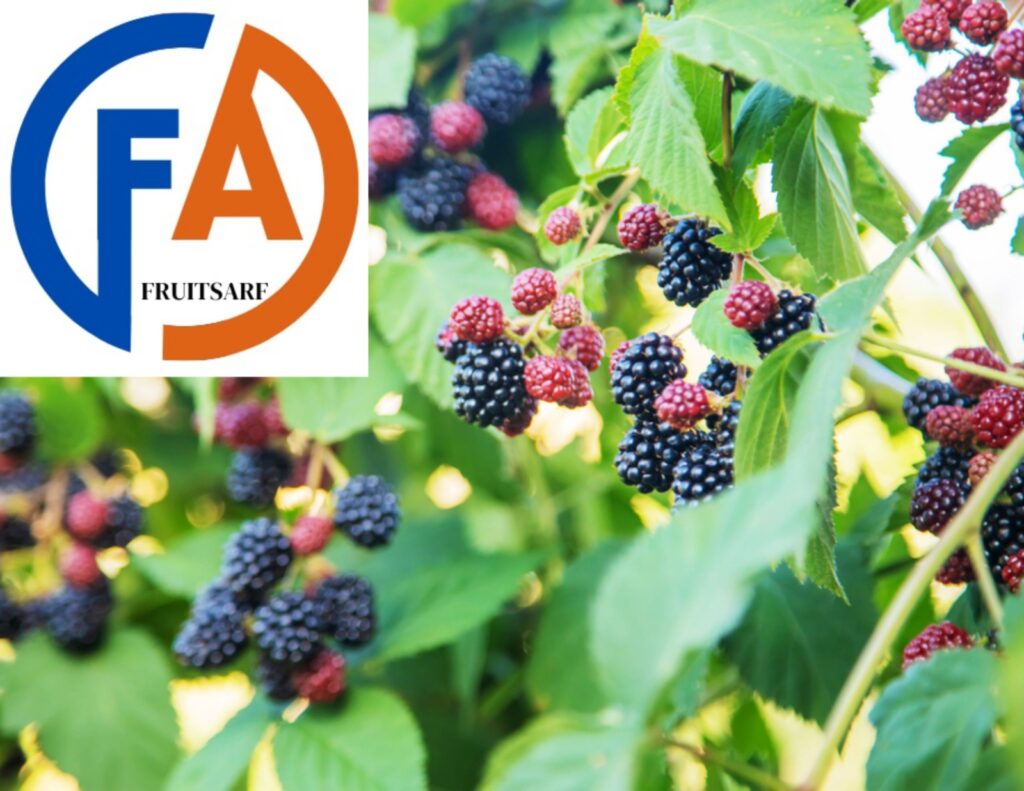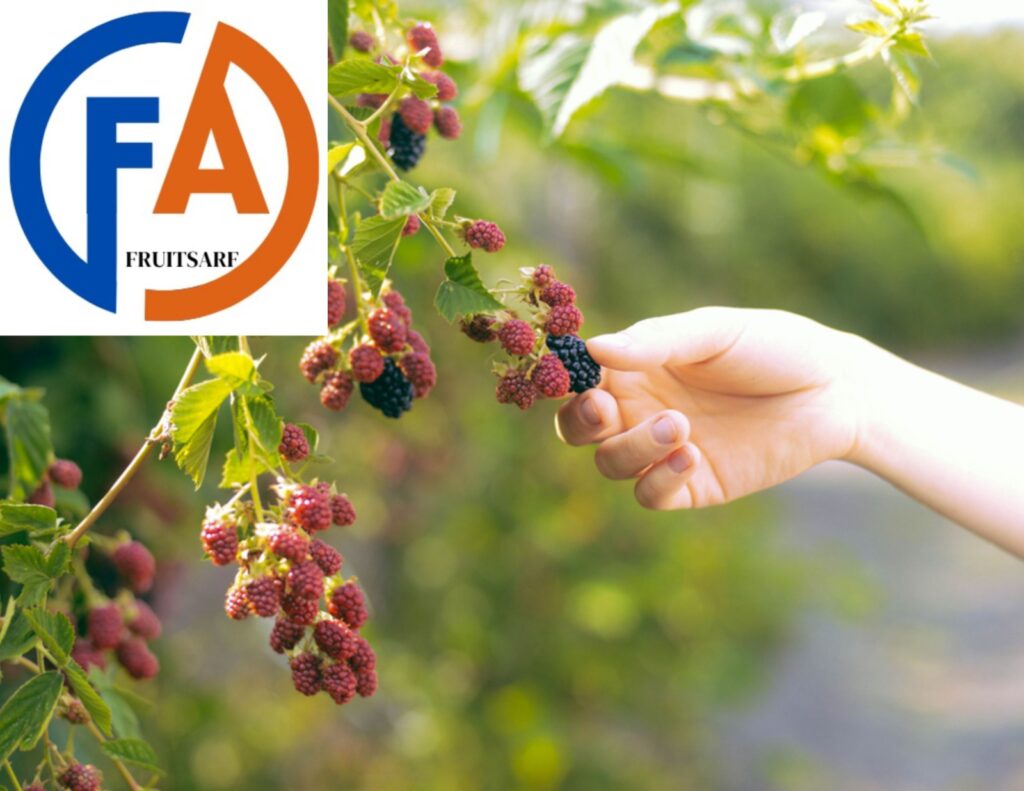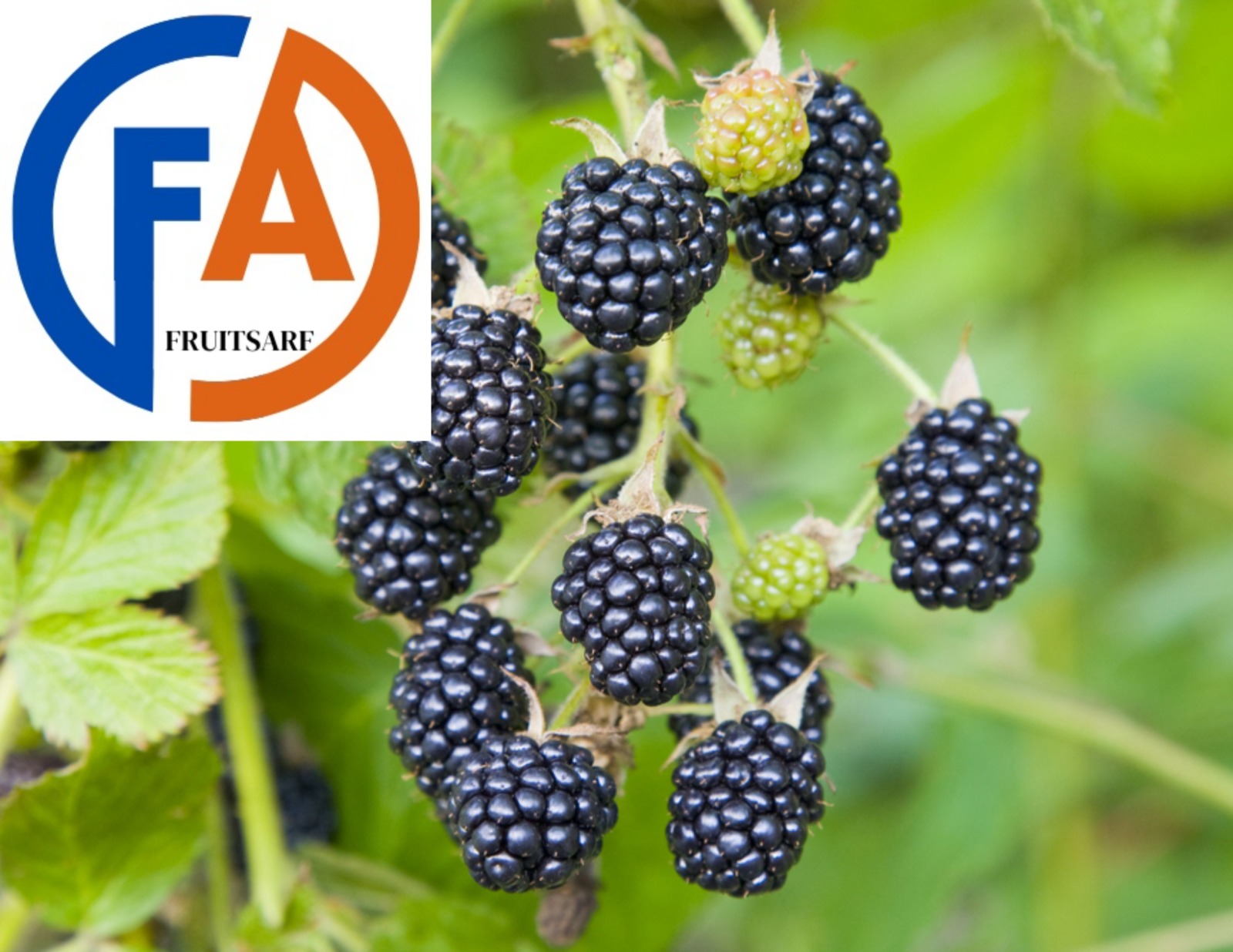A Comprehensive Guide of Growing Blackberries
The growing blackberries plant is an annual that is in the family Rubus. Its fruits are juicy and sweet-tart. Because they are high in fiber, vitamins and antioxidants. These berries are a healthy addition to any diet. If you want to grow your own food, blackberries are a great choice because they are tasty and easy to do.
Growing blackberries is a fun hobby that people of all skill levels can enjoy. These tasty berries do well in a wide range of temperatures and soil types because they have a lot of nutrients and a great taste. To begin, pick a spot in the sun with dirt that drains well. Blackberry trees need to be watered often, especially when it’s dry outside, so they can grow well and produce fruit.
Pruning is important for keeping plants healthy and increasing fruit production because it gets rid of old canes and makes room for new ones. Putting mulch around the base of plants helps them stay wet and stops weeds from growing. Most Growing blackberries are ready to be picked in the summer when they turn a deep purple or black color.
Care should be taken when picking the berries so that they don’t get damaged. Growing blackberries in your own yard are a great addition to any food collection. They can be eaten fresh, used in treats, or stored for later use. If you take good care of your blackberry plants, they will give you a lot of fruit for many years.

Importance of Growing Blackberries
There are many benefits to growing blackberries, such as getting fresh, healthy fruits, saving money by not buying them in stores and feeling good about growing your own food.
Nutritional Benefits:
Growing blackberries are good for your health because they are full of vitamins, calcium and antioxidants.
Easy to Grow:
Growing blackberries do well in a wide range of temperatures and soil types and don’t need much care, so both new and experienced farmers can grow them.
Cost-Effective:
Growing blackberries at home saves money on groceries and gives you fresh, tasty fruit that you can eat or freeze.
Environmental Benefits:
Blackberry bushes keep the soil from washing away, bring in pollinators and help fields and wild areas be more diverse.
Enjoyment for All Ages:
Kids will want to be outside and play when they can grow their own strawberries. It’s also fun for the whole family.
Community Building:
Sharing extra strawberries with neighbors builds community and improves social ties because everyone likes to garden and live a healthy life.
How to Growing Blackberries
If you want to grow blackberries successfully, put them somewhere warm with dirt that doesn’t stay soggy. Also, cut back the canes often to promote new growth and bigger fruit. For a good yield, make sure the plants get enough water and fertilizer and keep pests and diseases away.
Choosing the Right Variety:
Before you plant blackberries, you need to make sure you pick a type that will do well in your area and temperature. Common types include thornless varieties that are easy to care for and upright or drooping varieties that let you choose.
Selecting the Perfect Location:
Blackberries grow best in dirt that doesn’t stay soggy and get lots of sunshine. To avoid fungus diseases, pick a spot that gets full sun and has good airflow.
Planting Blackberries:
Make sure the earth has a pH level between 5.5 and 7.0 and is full of organic matter before you plant blackberries. Make a hole big enough for the roots and then arrange the plants in rows about 3 to 4 feet apart.

Blackberry Bush Care
Blackberry trees need to be pruned, watered, and fertilized in the right way to make sure they grow well and produce lots of fruit. Regularly get rid of any canes that are dead or sick and give canes that are spreading a place to rest so they don’t touch the ground. Putting mulch around the base of the bushes also helps them stay moist and stops weeds from growing. Which is good for the health of the plants as a whole.
Watering Requirements:
Blackberry plants need steady wetness during the growing season to make big, juicy berries. Once a week, give the dirt a lot of water and make sure it stays fairly moist but not soaked.
Pruning Techniques:
Growing blackberries bushes need to be pruned regularly to stay healthy and produce lots of fruit. In late winter or early spring, cut off any canes that are dead or sick and spread out any growth that is too dense to allow more air to flow.
Fertilizing Blackberry Bushes:
Use a balanced fertilizer in early spring, before the plants start to grow new leaves and stems. Add extra nitrogen during the growing season to help the leaves and fruits grow quickly.
Blackberry Planting
Blackberry plants need to be spaced out correctly and get enough sunlight to grow well and produce juicy, tasty fruits. Pruning and careful care are needed to get a lot of food from these hardy and useful plants.
Season for Planting:
When the weather is warm and the dirt is easy to work with, late winter or early spring is the best time to plant blackberries. Planting shouldn’t be done when it is very hot or cold, as this can stress out young plants.
Spacing Between Plants:
Growing blackberriesneed to be spaced out well so that air can flow and sunshine can reach them. Plant bushes in rows about 3 to 5 feet apart to give them plenty of room to grow and be harvested.
Depth of Planting:
Place the root ball of the blackberry plant at the same depth it was in the nursery pot. To get rid of air holes, pack down the dirt around the roots and water it well.
Do Blackberries Need Full Sun?
Full sun is best for blackberries because it helps them grow and produce the most fruit. Plants that grow blackberries get the energy they need for photosynthesis and growth when they get enough sunshine. Blackberries can handle some shade, but they usually produce more and better fruit when they are in full sun.
Understanding Sunlight Requirements:
Blackberries can grow in some shade, but they do best when they have full sun. Aim for at least 6 to 8 hours of straight sunlight each day to make sure strong growth and lots of fruit.
Partial Shade vs. Full Sun:
In places where it gets very hot in the summer, giving blackberry plants shade in the afternoon can help keep them from getting sunburned and stressed out by the heat. Long-term shade, on the other hand, can make plants less productive and fruitful overall.
Blackberry Soil pH
The pH of blackberry dirt is very important for its growth. Blackberries usually do best in sour conditions between 5.5 and 6.5. Keeping the pH level at the right level helps plants absorb nutrients well and make lots of berries.
Importance of Soil pH:
Blackberry growth and yield depend a lot on the pH of the soil. A slightly acidic to neutral pH level between 5.5 and 7.0 will help plants take in nutrients and grow roots.
Testing Soil pH:
Do a soil pH test with a commercial kit or a digital meter before you grow blackberries. If the earth needs it, add lime to raise the pH or sulfur to lower it. This will make sure that plants can grow in the best circumstances.
Adjusting pH Levels for Optimal Growth:
For Growing blackberries to grow well, the soil needs to be tested and the pH level needs to be checked on a regular basis. As needed, make changes to the dirt to keep it in the right range for plants to stay healthy and produce food.

Bottom Lines
It’s easy and fun to grow blackberries. With the right care, they can do well in a wide range of temperatures. Pick a spot with lots of sun and dirt that doesn’t stay soggy. Bushes stay healthy if they are pruned and watered regularly.
In the summer, eat tasty berries. The best time to plant is in the spring. Keep in mind that strawberries grow best in full sun. For best growth, check the pH of the dirt. Start growing blackberries right away to get a big crop.
Growing blackberries at home can be fun and satisfying, and the fruit you get will be fresh and tasty. Sticking to the tips in this article will help your strawberry bushes grow well so you can enjoy a plentiful crop every year.
FAQs
Can I grow blackberries in containers?
Yes, blackberries can be grown in big pots or planters as long as they get enough sun and water regularly.
How long does it take for blackberry plants to produce fruit?
Most blackberry plants start making fruit in their second year, and by their third year, they are making all of their fruit.
Do blackberry bushes require support structures?
Yes, trellising or other support systems can help some types of blackberries, especially hanging types, keep their canes straight and make picking easier.
What pests and diseases should I watch out for when growing blackberries?
Blackberry plants can get diseases like powdery mildew and anthracnose, and common pests are aphids, spider mites, and Japanese beetles.
When is the best time to harvest blackberries?
When blackberries are fully black and can be gently pulled off the plant, they are ready to be picked.
